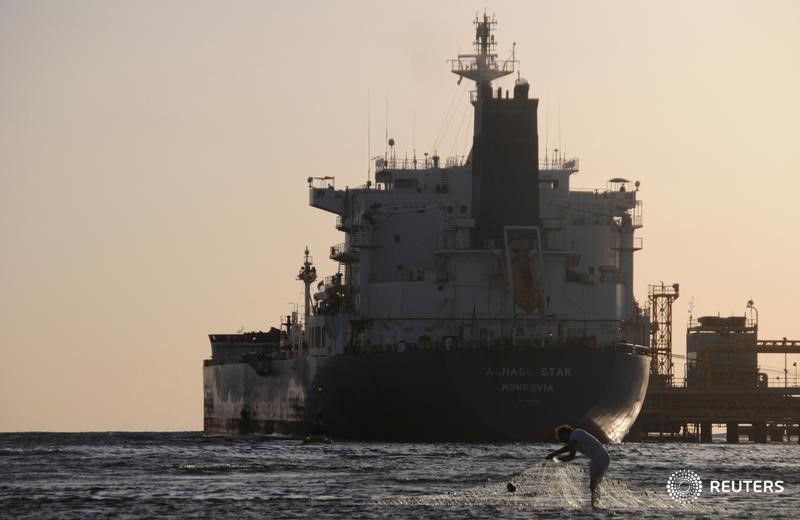By Suleiman Al-Khalidi
AMMAN (Reuters) - Syria said on Sunday it would import more crude oil to cover fuel shortages it blames on Western sanctions that disrupted regular Iranian oil shipments that had for years compensated for the country's loss of domestic oil production as a result of conflict.
The sanction-hit country has over the past year faced months of gasoline and fuel shortages, forcing it to ration supplies distributed across government-held areas and to apply several rounds of steep price hikes.
Prime Minister Hussein Arnous did not specify how Syria would secure extra supplies but said they had already imported 1.2 million tonnes of Iranian crude oil that cost along with petroleum products in the last six months around $820 million.
The shortages worsened after seven oil tankers on their way to Syria were intercepted in "terrorist attacks" with two of the vessels delayed for over a month in the Red Sea before loading, Arnous was quoted as saying in state media without elaborating.
The fuel shortages come at a time the country is in the throes of an economic crisis, amid a collapsing currency and inflation sky-rocketing, aggravating hardships for ordinary Syrians battered by years of war.
Arnous said his country now produced only 20,000 bpd with around 400,000 bpd lost from oil fields in northeastern Syria now under the control of U.S.-backed Syrian Democratic Forces (SDF) spearheaded by the Kurdish Syrian YPG militia.
"We have become dependant on imported oil and we have used up foreign currency in large amounts to pay for petroleum products," Arnous told deputies in a speech to Parliament.
Damascus blames Washington for the country's dependence on imports.
Syria has in recent years grown more dependent on Iranian oil shipments but tightening sanctions on Iran, Syria and their allies and a foreign currency crunch has made it more difficult to get enough supplies in the past year, industry experts say.
The country's ability to finance imports has also been curtailed by a financial crisis in neighboring Lebanon where billions of dollars held by Syrian businessmen were frozen by its hard-hit banks, businessmen and bankers say.
